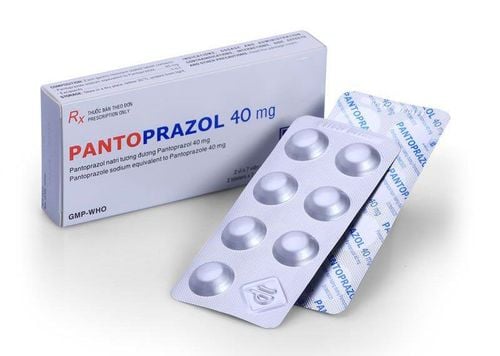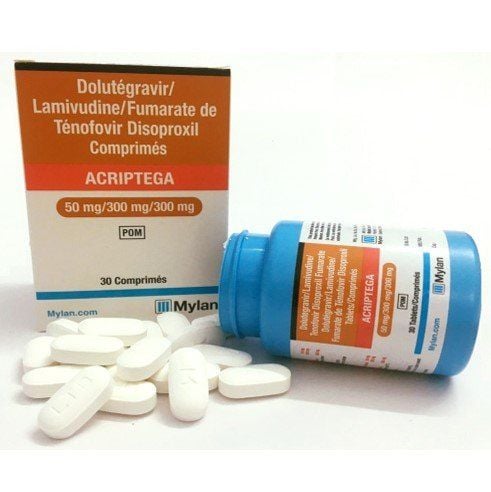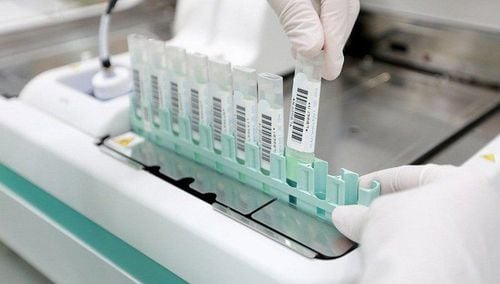This is an automatically translated article.
Urea blood test is an important test with many meanings in diagnosis and treatment. The following article will help readers learn about the cases in which a urea test is required.
1. Meaning of blood urea test
1.1 Physiology of urea in the body Urea is a product created during protein metabolism, which is considered the main degradation pathway of proteins in the body. Urea is produced in the liver by the Crebs-Henseleit cycle. The process of urea formation is shown by the following diagram: Protein--> amino acids --> NH3 --> Carbamyl phosphate --> Citrulin --> Arginene --> Urea Proteins in the cycle can be foreign proteins biological, ie foods containing protein consumed by the body every day or endogenous proteins - proteins of the body's organs. All these proteins will be combined into a common source to convert into amino acids, amino acids do not retain their structure but continue to participate in metabolic reactions to create NH3 and CO2. Free NH3 is very toxic to the body, NH3 is transported to the liver in a conjugated form. In the liver, NH3 is converted into urea. Because the process of converting NH3 into urea takes place in the liver, if the liver is dysfunctional, this metabolism will be impaired, the amount of urea formed in the blood is lower, the concentration of blood urea is lower. The level of NH3 in the body increases. NH3 is a toxin, accumulation of NH3 can cause many serious diseases (such as encephalopathy due to increased ammonia).Urea is eliminated from the body through two ways:
Gastrointestinal tract: Part of urea is eliminated. Intussusception Renal tract: Urea is transported from the liver to the kidneys by blood cells, the kidneys continue to filter urea again, then excrete urea through the urine.
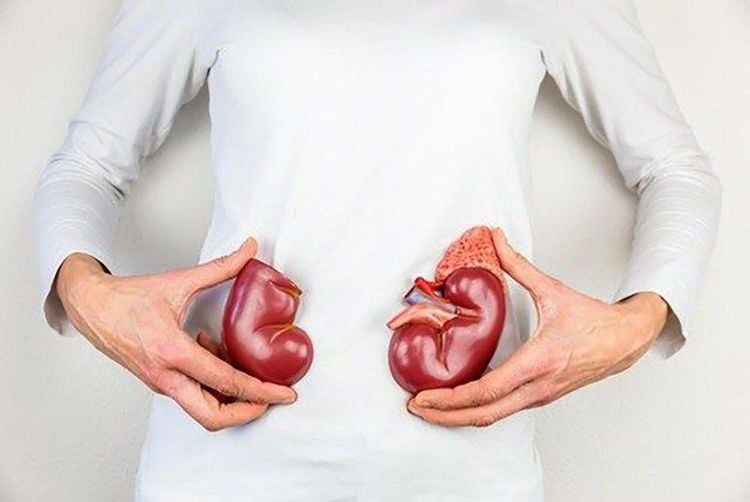
Ure ra ngoài qua đường nước tiểu
Kidney is the main way to eliminate urea, if the kidney is dysfunctional, the ability to excrete urea through urine decreases, blood urea concentration increases.
Thus blood urea concentration is closely dependent on liver and kidney function, urea test is used to check liver and kidney function. Blood urea concentration in the normal range is 3.3-8.3 mmol/l. However, in some cases, the blood urea test result is above or below the upper limit, but the liver and kidney function is still normal. Because in addition to kidney and liver function, blood urea levels also depend on other factors such as: protein intake provided through the diet, endogenous protein catabolism, and electrolyte balance in the body. .
1.2 Cases of increase and decrease in blood urea The main causes of uremia include:
High protein diet Protein catabolism increases due to fever, malnutrition, fasting, burns, neoplasms gastrointestinal bleeding Renal failure due to pre-renal, renal and post-renal causes Severe infections, mercury poisoning The main causes of uremia include:
Children of growing age Women who are pregnant Blood Dilution due to dialysis, late pregnancy, volume overload, nephrotic syndrome Syndrome of inappropriate secretion of ADH Liver failure: cirrhosis, acute or chronic hepatitis, large metastatic infection Celiac disease Diet does not provide enough protein, malabsorption syndrome.
2. Cases needing blood urea test
Indication of blood urea test can be done in the following cases:
When the doctor needs to assess the patient's kidney function, it helps to detect kidney failure early to give timely treatment options . When it is necessary to evaluate the severity of renal failure to decide whether the patient needs emergency dialysis or not. Urea blood test is an indispensable test to evaluate kidney function before treatment with drugs with strong pharmacological properties, potentially causing nephrotoxicity. This is an adjunct test to determine whether the patient's kidneys can tolerate the drug's medicinal properties.
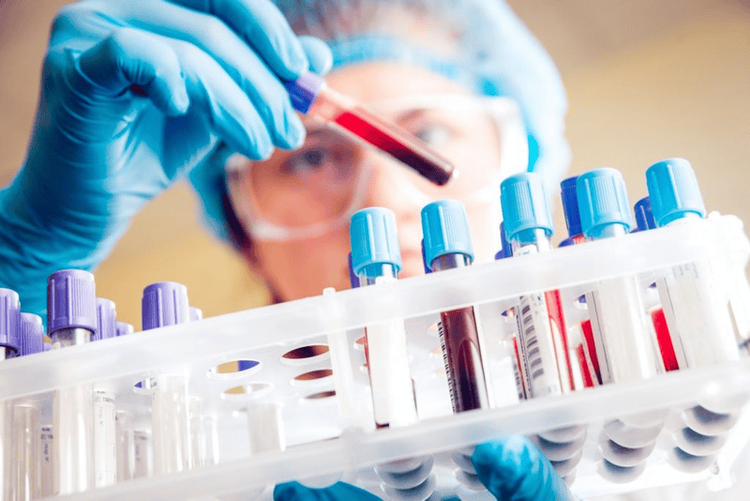
Xét nghiệm ure trong máu đánh giá chức năng thận
In the case of a patient with kidney failure, a blood urea nitrogen test can help doctors differentiate the cause of kidney failure. Renal failure of prerenal origin (due to dehydration, hypovolemia, heart failure,..), the urea/creatinine ratio is usually greater than 40. While renal failure is due to other causes, the urea/creatinine ratio is usually less than 40. Determining the cause of kidney failure will help doctors choose the correct treatment method, bringing high efficiency to the patient. In the case of elevated blood urea, the results of the urine urea/blood urea concentration ratio can provide information to help determine the source of renal failure. In normal subjects and functional renal failure, urine urea/blood urea concentration >10. In people with structural renal failure, urine urea/blood urea concentration >10. Urea testing is also indicated when it is necessary to assess the patient's metabolic needs. From the test results, it is possible to determine the amount of protein the patient is using. If the patient is being treated for diseases that require a special diet, based on the test results, the doctor will advise to adjust the appropriate diet. To perform a blood urea test, about 2ml of blood will be drawn from the patient. The patient does not need to prepare in advance nor fast before taking blood, the test time usually takes about 1 hour.
Vinmec International General Hospital is one of the hospitals that not only ensures professional quality with a team of leading medical doctors, modern equipment and technology, but also stands out for its examination and consultation services. comprehensive and professional medical consultation and treatment; civilized, polite, safe and sterile medical examination and treatment space. Customers when choosing to perform tests here can be completely assured of the accuracy of test results.
Please dial HOTLINE for more information or register for an appointment HERE. Download MyVinmec app to make appointments faster and to manage your bookings easily.






